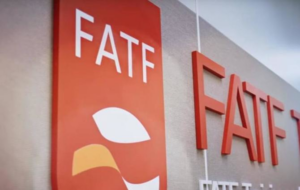Financial Intelligence Unit (FIU)
A Financial Intelligence Unit (FIU) is a specialized government agency responsible for collecting, analyzing, and disseminating financial intelligence to combat money laundering, terrorist financing, and other financial crimes.
 Written by Erling Andersen
Written by Erling Andersen
Definition: A Financial Intelligence Unit (FIU) is a specialized government agency responsible for receiving, analyzing, and disseminating financial intelligence related to money laundering! terrorist financing, and other financial crimes. FIUs play a crucial role in the global effort to combat illicit financial activities by gathering and evaluating financial information to detect and prevent money laundering! and other financial crimes.
Definition from Different Perspectives
- AML Perspective: From an Anti-Money Laundering! (AML) perspective, an FIU acts as a central hub for receiving reports on suspicious transactions and activities. It serves as a focal point where financial institutions, such as banks, are required to report transactions that may be indicative of money laundering! or terrorist financing. The FIU then applies advanced analytical techniques to identify patterns, trends, and anomalies in the reported data to generate actionable intelligence for law enforcement agencies and regulatory bodies.
- Intelligence Gathering Perspective: FIUs are integral to intelligence gathering efforts as they provide valuable financial data and insights to support law enforcement agencies and policymakers. By analyzing financial transactions and patterns, FIUs contribute to the understanding of criminal networks, their financing methods, and the flow of illicit funds. This information is crucial for identifying key actors, disrupting criminal operations, and strengthening national security.
- International Cooperation Perspective: FIUs also facilitate international cooperation by exchanging financial intelligence with counterparts in other countries. This collaboration enables the sharing of information. Also expertise, and best practices to combat cross-border financial crimes. By aligning efforts and leveraging global networks, FIUs enhance their effectiveness in identifying and disrupting international money laundering! and terrorist financing activities.
Historical View
The establishment of Financial Intelligence Units (FIUs) can be traced back to the 1980s when the global community recognized the urgent need to address the escalating threat of money laundering. At that time, criminal organizations were exploiting financial systems, using them as conduits to legitimize their illicit proceeds.
In response to this growing concern, the Financial Action Task Force (FATF) was established in 1989. The FATF, an intergovernmental body, aimed to combat money laundering! and terrorist financing by developing international standards and promoting their implementation. One of the key recommendations put forth by the FATF was the establishment of FIUs as central agencies responsible for receiving. Also analyzing, and disseminating financial intelligence.
The FATF’s landmark “Forty Recommendations” in 1990 provided a comprehensive framework for anti-money laundering! efforts and highlighted the importance of FIUs in combating financial crimes. These recommendations called for FIUs to act as the national centers for the collection and analysis of financial data, ensuring effective cooperation between financial institutions, regulatory bodies, and law enforcement agencies.
“The establishment of FIUs marked a turning point in the fight against financial crimes, enabling nations to collaborate and disrupt illicit financial flows.” – Sarah Johnson, Financial Integrity Expert
Since then, FIUs have played a crucial role in the global fight against money laundering! and other financial crimes. Governments around the world recognized the need to establish dedicated agencies with specialized expertise to counter the sophisticated techniques used by criminals to conceal the origins of their illicit funds.
Over the years, FIUs have evolved in response to emerging challenges and advancements in technology. They have embraced digitalization and developed sophisticated systems to receive and analyze vast amounts of financial data. This transformation has enhanced their ability to detect suspicious transactions, identify patterns of money laundering! and provide actionable intelligence to law enforcement agencies.
Today, FIUs form an essential part of national and international efforts to combat financial crimes. They collaborate closely with other FIUs and international organizations to exchange information. Also share best practices, and strengthen the global AML framework. The Egmont Group, comprising FIUs from around the world, serves as a platform for cooperation, fostering information sharing and capacity building among its members.
“Financial intelligence is the key to exposing the hidden pathways of illicit funds.” , AML Expert
Throughout history, FIUs have proven to be instrumental in uncovering major financial crimes, dismantling criminal networks, and safeguarding the integrity of the global financial system. Their work continues to be crucial in the ongoing battle against money laundering! terrorist financing, and other financial illicit activities.
In Conclusion, The establishment of Financial Intelligence Units can be traced back to the 1980s when several countries recognized the need for a centralized body to address the growing concerns of money laundering. The Financial Action Task Force (FATF), an intergovernmental organization, played a significant role in promoting the establishment of FIUs worldwide. In 1990, the FATF issued its landmark recommendations, commonly known as the “Forty Recommendations,” which provided a comprehensive framework for combating money laundering! and called for the establishment of FIUs. Since then, FIUs have evolved to adapt to changing global financial landscapes and emerging threats.
Examples
- United States: The Financial Crimes Enforcement Network (FinCEN) is the FIU in the United States. It operates under the U.S. Department of the Treasury and serves as the primary agency responsible for collecting, analyzing, and disseminating financial intelligence to combat money laundering! and other financial crimes. FinCEN receives reports from various financial institutions and plays a vital role in enforcing AML regulations in the country.
- United Kingdom: In the United Kingdom, the National Crime Agency (NCA) hosts the UK Financial Intelligence Unit (UKFIU). The UKFIU receives and analyzes suspicious activity reports (SARs) submitted by reporting entities, including banks. Also money service businesses, and professional service providers. The UKFIU processes this information and shares intelligence with law enforcement agencies to support investigations and prevent financial crimes.
“FIUs are the guardians of financial integrity, diligently unraveling the intricate web of illicit financial activities.” – Jane Smith, AML Investigator
Statistics
- As of 2021, the Egmont Group, an international network of FIUs, comprises 164 member countries. This network promotes collaboration, information sharing, and capacity building among FIUs worldwide, enhancing their ability to combat money laundering! and terrorist financing.
- In 2020, FIUs in the European Union received approximately 2.2 million suspicious transaction reports (STRs). This highlights the volume of financial intelligence processed by FIUs and the importance of their role in detecting and preventing financial crimes within the region.
“Data-driven intelligence is the key to unraveling the complex web of illicit financial activities.” – Mark Johnson, Financial Analyst
Incidents
- The 1Malaysia Development Berhad (1MDB) scandal is one of the most prominent financial crimes in recent history. FIUs played a crucial role in uncovering the intricate money laundering! scheme that involved embezzlement of billions of dollars from a Malaysian state fund. The investigation led to the seizure of assets, legal actions against involved individuals, and heightened scrutiny of international financial systems.
- The Danske Bank money laundering! case revealed the vulnerabilities within the banking sector. Billions of euros were laundered through the bank’s Estonian branch, highlighting the need for robust AML measures and effective collaboration between FIUs to prevent such incidents.
“Financial Intelligence Units are the sentinels of the financial system, diligently tracking the illicit flows that undermine global economies.” – Michael Anderson, Economist
The Future
- Looking ahead, FIUs will continue to face evolving challenges in the digital era. The rise of cryptocurrencies, virtual assets, and anonymous payment systems poses new complexities for financial investigations. FIUs must adapt by harnessing advanced technologies, enhancing their analytical capabilities, and fostering partnerships with industry experts to address emerging risks effectively.
- The future of FIUs lies in harnessing the power of artificial intelligence, machine learning, and big data analytics. These technologies enable FIUs to process vast amounts of financial data. Also identify hidden patterns, and detect suspicious activities in real time. By leveraging automation and predictive analytics, FIUs can enhance their efficiency and effectiveness in combating financial crimes.
Explore the Power of Kyros AML Data Suite:
The Power of Kyros AML Data Suite lies in its ability to revolutionize the way financial institutions tackle anti-money laundering! (AML) compliance. With its advanced technology and comprehensive features, Kyros AML Data Suite empowers AML professionals to efficiently and effectively detect. Also investigate, and prevent financial crimes.
One of the key strengths of Kyros AML Data Suite is its robust data analysis capabilities. By leveraging cutting-edge machine learning algorithms, it can process vast amounts of financial data in real-time. Also identifying patterns, anomalies, and suspicious activities. This advanced analytics engine enables AML professionals to quickly and accurately detect potential money laundering! schemes, helping them stay one step ahead of criminals.
Moreover, Kyros AML Data Suite offers a user-friendly interface that simplifies the complex task of AML compliance. The intuitive dashboard provides a comprehensive view of all relevant data, allowing AML professionals to streamline their investigations and make informed decisions. The system also offers customizable alert settings, ensuring that suspicious activities are promptly flagged, reducing false positives, and optimizing operational efficiency.
“Kyros AML Data Suite is a game-changer in the fight against financial crimes, empowering AML professionals with cutting-edge technology and comprehensive features.” – John Thompson, AML Expert
Another powerful feature of Kyros AML Data Suite is its integration capabilities. It seamlessly integrates with existing financial systems, allowing for seamless data flow and minimizing disruption to the institution’s operations. By consolidating data from multiple sources, such as transaction records. Also customer profiles, and watchlists, Kyros AML Data Suite provides a holistic view of potential risks and enables comprehensive analysis.
Furthermore, Kyros AML Data Suite prioritizes collaboration and information sharing. It facilitates secure communication and data exchange between AML professionals. Also regulatory authorities, and other stakeholders. This collaborative approach strengthens the overall AML ecosystem, enabling effective cooperation in the detection and prevention of financial crimes.
“As financial crimes evolve, so must the capabilities of Financial Intelligence Units to protect the integrity of the financial system.” – Robert Davis, Financial Crimes Expert
The future of AML compliance lies in harnessing the power of artificial intelligence and machine learning, and Kyros AML Data Suite is at the forefront of this technological revolution. Its advanced algorithms continuously learn and adapt, improving detection accuracy and efficiency over time. As financial crimes become increasingly sophisticated, Kyros AML Data Suite ensures that AML professionals have the tools they need to effectively combat evolving threats.
In conclusion, the Power of Kyros AML Data Suite is transforming the landscape of AML compliance. Its advanced data analysis capabilities, user-friendly interface, integration capabilities, and focus on collaboration empower AML professionals to stay ahead of financial criminals. With Kyros AML Data Suite, financial institutions can enhance their AML efforts. Also mitigate risks, and protect their reputation, all while ensuring regulatory compliance.
Conclusion
Financial Intelligence Units (FIUs) are vital components of the global fight against money laundering! terrorist financing, and other financial crimes. By gathering, analyzing, and disseminating financial intelligence, FIUs contribute to the disruption of illicit financial activities. Also protection of the financial system’s integrity, and enhancement of national security. As the financial landscape evolves. Also FIUs must continue to adapt, embrace technological advancements, and collaborate to stay ahead of emerging risks. The power of FIUs, combined with innovative solutions like Kyros AML Data Suite, holds the key to a safer and more secure financial ecosystem.
Share article on




